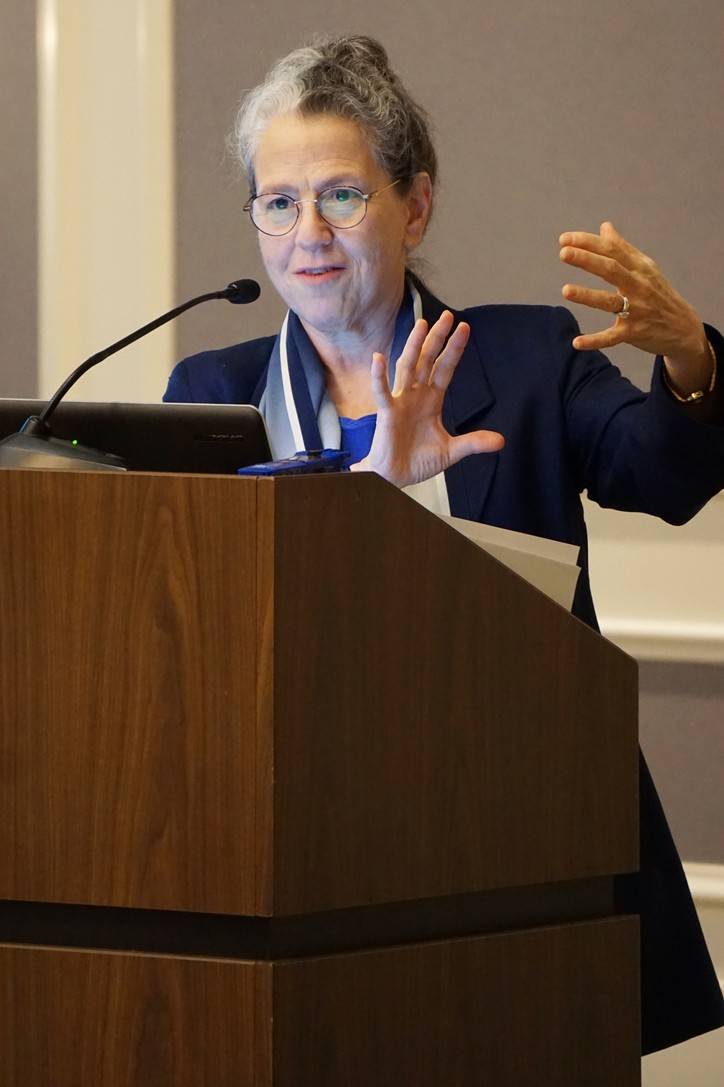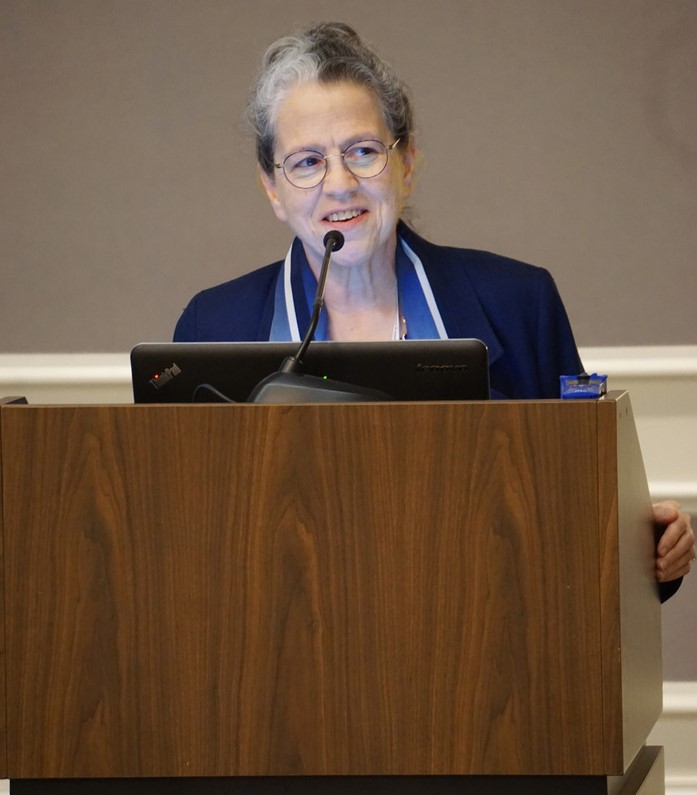
We as legal educators are part of a broad infrastructure of “knowledge institutions” — universities, a free press, scientific offices (public and private), even libraries — that help provide the epistemic foundation for a successful democracy. Law schools play special roles in protecting our constitutional system, through the scholarship their faculty produce and through how they educate their students to become lawyers, judges, and other participants in our legal system. In these ways, law schools help to maintain a well-functioning system of rights-protecting democracy, based on free and open elections, and to resist erosion of foundational principles of equality, due process, and the rule of law, which serve as bulwarks against authoritarianism.
Law schools support research on constitutional democracy through the work of individual faculty and through specialized programs or centers. The University of Virginia School of Law, for example, recently established the Karsh Center for Law and Democracy, whose “mission is to promote understanding and appreciation of the principles and practices necessary for a well-functioning, pluralistic democracy” through legal and interdisciplinary scholarship. The Clough Center for the Study of Constitutional Democracy, which began at Boston College Law School more than a decade ago, aims (in the words of its Director, Professor Vlad Perju) to “reinvigorate and reimagine the study of constitutional democracy in the twenty-first century” and “foster original research … on the promise and challenges of constitutional government in the United States and around the world.” And the Floersheimer Center for Constitutional Democracy at Cardozo Law School has, since 2000, encouraged scholarship “advancing the functioning of constitutional democracies in the United States and abroad.”
Law schools make important contributions to constitutional democracy not only through academic activities that directly engage with current public law issues and democratic constitutionalism as such, but also through training lawyers, over time, in the complexities of a legal system that also addresses the economy (e.g., corporations, markets, and contracts) and other important institutions (e.g., the family). Law schools equip their students to serve in a legal system that must be at once dynamic and stable — able to change when change is needed to produce a more just or workable system, yet providing beneficial continuity in relationships and institutions, including peaceful dispute resolution mechanisms, thereby contributing to consistency in expectations and to other rule-of-law goals. Law schools educate future lawyers, judges, and other government officials on the importance of individual rights and the need for independence and courage in sustaining them — as we saw when lawyers, law students, faculty, and judges responded quickly to the first “travel ban” issued January 27, 2017.
Over the long run, our scholarship — produced often by multiple scholars, and over a period of many years — might have even more potential than our teaching to influence, not just current students and scholars, but future generations, and to move the legal community towards better, and more just, understandings of what the law should be.
A critical function of legal scholarship is to identify both what is working well and what is not working well in the legal system. Despite occasional dismissals of legal scholarship by judges, it is important for law faculty to understand that legal scholarship has had and will in all likelihood continue to have important, positive impacts.
Sometimes singular works — such as Samuel Warren and Louis Brandeis, “The Right to Privacy” (1890), or Catharine MacKinnon, Sexual Harassment of Working Women (1979) — function as groundbreakers in legal development, even as they may build on and inspire others. On sexual harassment, in the early 1970s I and many other women law students could not even name this problem; most lawyers, courts, and victims did not understand sexual harassment as a form of sex discrimination. Now we do. This was a truly significant change in the law. In the words of another influential work of legal scholarship (by William Felstiner, Richard Abel, and Austin Sarat), MacKinnon’s book “named and claimed,” defined and analyzed the legal injuries from such behavior. What had once seemed “natural,” a part of the background that one could not envision changing nor even see in legal terms, has come to be understood as a form of discrimination, a legally repugnant obstacle to gender equality.
Often, however, it is the cumulative work of many scholars over time, sometimes in the same field, sometimes on different issues, that may have influence on protecting or changing the law. I draw here on examples from talks I have given at the AALS Workshop for New Law School Teachers.

Consider Boumediene v. Bush (2008), the first and only time the Supreme Court held a congressional statute unconstitutional under the U.S. Constitution’s Habeas Corpus Clause. The Court’s opinion cited Hart & Sacks’ Legal Process materials, originally written in the 1950s, and several works of legal history on British law, the Magna Carta, and the writ of habeas corpus, including a then brand-new coauthored article by Paul Halliday and G. Edward White, as well as a 1952 article by Rex Collings. Further, the Court cited a legal historians’ amicus brief on administration of habeas corpus in India under British colonial rule; the American Law Institute’s 1986 Restatement (Third) of Foreign Relations Law on the meaning of sovereignty; and then-recent scholarship on the Constitution and the territories by Christina Duffy Burnett. Additionally, on statutory interpretation, the Court cited Bill Eskridge, Phil Frickey, and Beth Garrett’s 2001 casebook on legislation, and, on whether facts may be contested on habeas corpus, one article from 1966 by Dallin Oaks and a 2007 co-authored piece by Richard Fallon and Dan Meltzer. This is not a complete listing, but these examples give a sense that in this highly important case, the Court’s opinion drew extensively on legal scholarship by multiple authors written over a long period of time.
As legal scholars, we sometimes write for the present. But we also write for the long haul, hoping that even if our work does not influence current judges, lawyers or legislators it may do so in the future, maintaining the rule of law over time.
On race and equality, much scholarship in recent decades has sought to better illuminate embedded or implicit practices that reinforce inequalities. The powerful metaphor of racial minorities as the “miners’ canary” of society was advanced by Lani Guinier and Gerald Torres in a book with this title, cited by Justice Sotomayor in her dissent in Utah v. Streiff (2016). Justice Sotomayor objected to the majority’s holding that a pre-existing and untainted arrest warrant allowed evidence seized incident to an unlawful investigatory stop to nonetheless be admissible. Justice Sotomayor noted that such conduct — suspicionless stops — fell disproportionately on people of color, and urged that those who are routinely targeted for such police misconduct
“are the canaries in the coal mine whose deaths, civil and literal, warn us that no one can breathe in this atmosphere. See L. Guinier & G. Torres, The Miner’s Canary 274–283 (2002). They are the ones who recognize that unlawful police stops corrode all our civil liberties and threaten all our lives. Until their voices matter too, our justice system will continue to be anything but.”
Guinier and Torres’ book was published in 2002; Justice Sotomayor cited it in 2016. It can take a good while for legal scholarship on sensitive issues to have a deep impact.
An emerging area of pressing importance for legal scholarship today arises out of concerns over democratic erosion. As recent scholarship suggests (see, for example, Tom Ginsburg and Aziz Huq, How to Save a Constitutional Democracy [2018]), threats against the press, against institutions of higher learning or their faculties, against government watchdogs, and against certain non-
governmental organizations often accompany threats to the independence of the courts and to genuinely free, fair, and open elections in countries with rising authoritarianisms. These “knowledge institutions,” though distinct from each other, together play a vital role in contributing to the information infrastructure of a democratic society.
Yet these institutions are sometimes studied in categories that obscure rather than illuminate their inter-connected roles in contributing to the epistemic base for constitutional democracy. Of course, the disciplinary commitments for the production of knowledge in different academic subjects vary; academic commitments differ from those of the press; and different legal regimes may apply to public as compared to private organizations. But as we have seen in some other countries, threats to one area, press freedoms, for example — may coincide with or contribute to threats in others — such as academic freedom for university faculties — as governments successful in one kind of repression feel emboldened to engage in others.
Although even autocratic governments require knowledge to exercise and maintain power, knowledge institutions play special roles in representative democracies. As the U.S. Supreme Court has said, in the Grosjean (1936) and Pittsburgh Press (1973) cases, “informed public opinion is the most potent of all restraints upon misgovernment.” In a democracy, the citizenry — or at least a sufficient swathe of the citizenry and their elected representatives — need access to good information to be able to identify trends of social and economic fact, as well as knowledge of relevant national and world history that bears on current issues. Knowledge is needed to select candidates to support: citizens must be able to evaluate arguments by opposing candidates for public office and to resist manipulation (which can come from many sources). Knowledge is also needed to engage in reasoned argument with fellow citizens. And knowledge is needed for the rule of law to be in effect and for the law to work to serve justice — so that laws, and how they are enforced, and what their effects are, can be known and evaluated.
Some knowledge institutions receive special constitutional protection for some of their activities: the press, referred to in the First Amendment’s text, and institutions of higher learning and their faculty, whose “academic freedoms” may be protected by judicial interpretations of the First Amendment. Knowledge institutions may also be affected by other, more general, constitutional provisions. Additionally, knowledge institutions may be helped or hurt by legal regimes across a range of areas including anti-trust, communications (including internet regulation), corporate (both for-profit and non-profit), immigration, and tax law; government spending, accreditation, and licensing programs; patent, copyright, and defamation law, and so forth.
Given the centrality of knowledge institutions in constitutional democracy — and given the centrality of our role as legal scholars in sustaining our democratic system as one of constitutional government under law — knowledge institutions offer a field of research to which some of our future scholarly efforts might fruitfully be devoted.
In whatever their field of interest, and through whatever scholarly approaches they use, law faculty and their scholarship will, I believe, continue to contribute to the important work of sustaining constitutional democracy and the rule of law, and of moving towards an ever-improving and more just legal system.